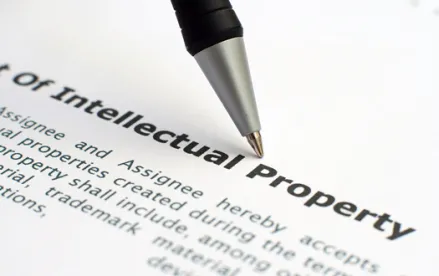Last week, the Supreme Court issued its decision in Romag Fasteners, Inc. v. Fossil Group, Inc., No. 18-1233,[1] in which it held that the plaintiff in a trademark infringement action need not prove that the defendant acted willfully in order to collect a defendant’s profits under trademark law, reversing the Federal Circuit’s contrary decision. In short, the Supreme Court’s decision makes clear that trademark holders may seek as damages all profits made by through the defendant’s infringing conduct. In practice, this decision could not have come at a better time for trademark holders. As e-commerce has been a primary sales channel during the COVID-19 pandemic, the Supreme Court’s decision provides manufacturers with a powerful new tool to suppress unauthorized online resellers - the ability to seek all of their infringing profits as a measure of damages. This decision provides yet another benefit for product manufacturers who properly set up authorized reseller programs.
Prior Case Law Did Not Always Allow Disgorgement Of Defendant’s Profits
The key issue in Romag v. Fossil was whether Romag, a manufacturer of magnetic strips and fasteners for leather goods, had to prove that the defendant had willfully infringed its trademark in order to obtain a profits award as damages. In the district court, the jury ordered a profits award as damages upon concluding that Fossil had infringed Romag’s trademark. However, the district court overturned the jury’s profits award, stating that the fact-finder had to make a finding of “willfulness” to award profits; in this case, the jury had found only that Fossil acted with “callous disregard.” On appeal, the Federal Circuit affirmed the district court’s decision on the basis that Second Circuit precedent required a showing of “willfulness” to justify a profits award for a violation of Section 43(a).
The Supreme Court granted certiorari to address this question, and on April 23, 2020 reversed the Federal Circuit’s decision and ruled in favor of Romag. In reaching its decision, the Court examined the statutory language of the Lanham Act, and more specifically, the language of Section 35(a). The Court found that while many sections of the Lanham Act expressly included mens rea standards,[2] no such standard was included in Section 35(a) with respect to claims brought under Section 43(a). Because the Court declined to read in a mens rea standard where one obviously was not intended, it concluded that no showing of “willfulness” is required for a successful Section 43(a) plaintiff to obtain a profits award as damages.
Implications of the Supreme Court’s Decision
The Court’s decision in Romag is particularly good news for manufacturers, especially those facing disruption of their e-commerce channels by unauthorized resellers. Given the harm to their brands caused by unauthorized resellers, trademark law has long been used by manufacturers to suppress their infringing, online activities. Trademark law protects against false advertising, the resale of materially different products, and other similar activities often employed by unauthorized resellers. In fact, federal courts around the country have held that a single material difference between a good sold by a manufacturer and a good sold by an unauthorized reseller creates a presumption that the gray good has a potential to mislead or confuse consumers.[3] The liability portion of the manufacturer’s claim, therefore, is often relatively easy to establish.
In light of Romag, manufacturers not only have an easy path to liability, they also have a clear, concise damages model that relies entirely on data held by the unauthorized reseller. Whereas unauthorized resellers previously could move forward in litigation knowing that it would be difficult for a manufacturer to succinctly prove damages done to its reputation, there is now an easy path to recovering damages. Thus, where once an authorized reseller held leverage in the litigation, the Romag decision returns that leverage to the manufacturer.
As more sales move online due to the COVID-19 pandemic, the disruption caused by unauthorized resellers will continue to disrupt a manufacturer’s e-commerce strategy. As such, the Supreme Court has handed product manufacturers a powerful new trademark tool - a path to a clear damages model. Properly utilized, the Romag decision can be leveraged against unauthorized resellers to curb their infringing online activities. With the world focused on e-commerce sales, the Supreme Court’s Romag decision could not have come at a more opportune time.
[1] See Romag Fasteners, Inc. v. Fossil, Inc., 590 U.S. ___ (2020).
[2] See e.g., 15 U.S.C. § 1117(b) (requiring the defendant to engage in acts knowingly and intentionally for courts to award treble damages or profits and award attorney’s fees); see e.g., 15 U.S.C. § 1118 (requiring a plaintiff to prove either a willful violation of § 1125(c) or any violation of 15 U.S.C. § 1125(a) before a court can order infringing items be destroyed); see e.g., 15 U.S.C. § 1125(d)(1)(A)(i) (requiring a showing of “bad faith intent” in order to prohibit certain conduct).
[3] See id.; see also Beltronics USA, Inc. v. Midwest Inventory Distribution, LLC, 562 F.3d 1067, 1073-74 (10th Cir. 2009); see also Brilliance Audio, Inc. v. Haights Cross Communications, Inc., 474 F.3d 365, 370 (6th Cir. 2007); see also Davidoff & CIE, S.A. v. PLD Intern. Corp., 263 F.3d , 1301-02 (11th Cir. 2001); see also Iberia Foods Corp. v. Romeo, 150 F.3d 298, 302-06 (3d Cir. 1998); see also Martin’s Herend Imports, Inc. v. Diamond & Gem Trading USA, Co., 112 F.3d 1296, 1301-02 (5th Cir. 1997); Original Appalachian Artworks v. Granada Elecs., Inc., 816 F.2d 68, 73 (2d Cir. 1987).





 />i
/>i

